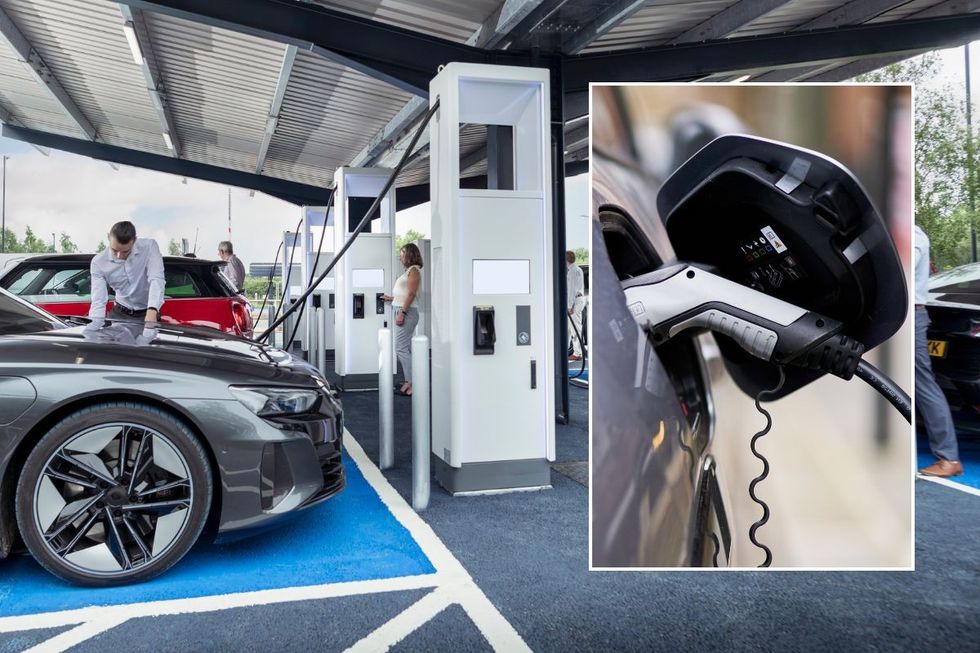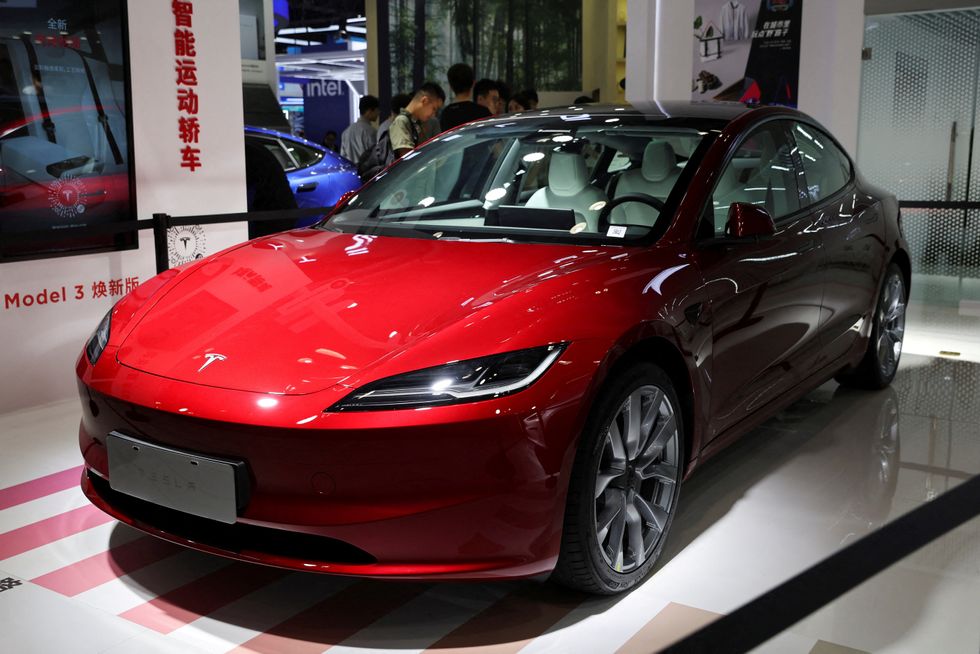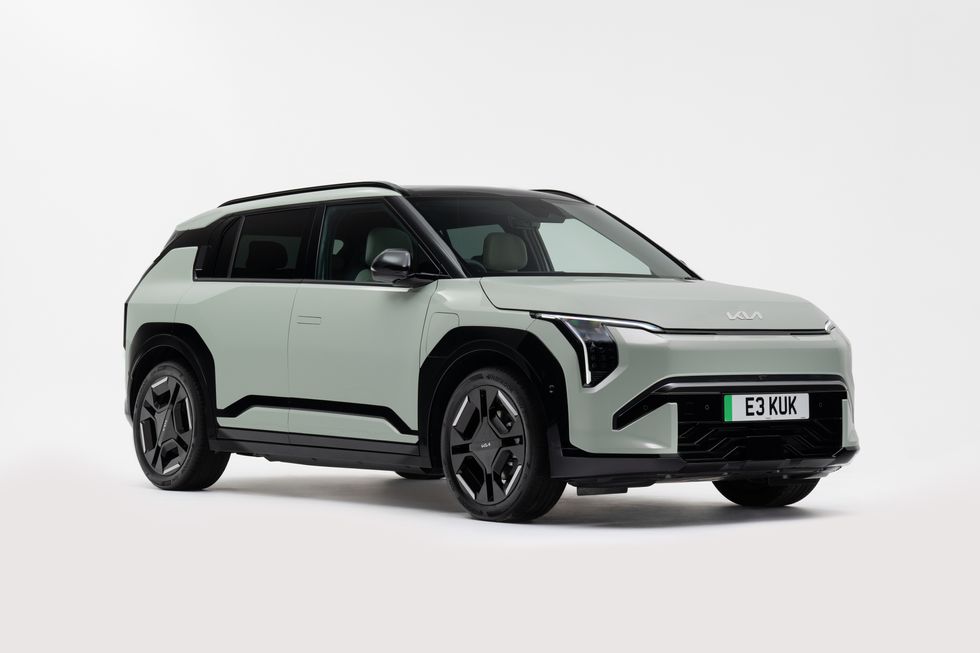Electric cars can lose almost half of battery range in extreme heat - 'Worse than winter tests!'

The electric vehicles travelled around 400km in temperatures ranging from 32C to 44C
Don't Miss
Most Read
New research has found that the battery range of an electric car plummets during heatwaves, potentially impacting the purchasing decisions of many drivers.
Testing took place between Seville and Aguadulce in Southern Spain, with drivers using a Citroen e-C3 Max, a Kia EV3 and a Tesla Model 3.
The experiment, conducted by What Car?, saw three motorists travel in temperatures ranging from 32C to 44C to see how quickly the battery range would decline in extreme heat.
All batteries were charged to between 90 and 100 per cent before setting off on the 400km or 248-mile journey.
Do you have a story you'd like to share? Get in touch by emailing motoring@gbnews.uk

Testing showed that the battery range of electric vehicles dropped significantly in extreme heat
|GETTY
Along the way, the Citroen encountered battery range issues, although it is significantly cheaper than the other two models.
The e-C3 Max travelled just 142 miles on a single charge, which is 29 per cent less than its claimed WLTP range of 199 miles.
The popular Kia EV3 travelled the furthest at 246 miles, which is a 32 per cent drop compared to its claimed 362-mile range.
Shockingly, the Tesla Model 3 managed just 244 miles, a staggering 44 per cent drop when compared to its impressive 436-mile range.
Much of the journey took place on Spain's motorway system, which maintains a speed limit of 100km/h (62mph) or 120km/h (75mph), meaning UK test conditions would be similar.
When the test concluded, the recorded temperature registered at 40. The Model 3 had just nine per cent battery remaining, while the EV3 recorded only one per cent more.
Charging the electric vehicles following the test also presented issues, with the heat still playing a role in the effectiveness of charging.
Will Nightingale, reviews editor at What Car?, said: "Our extreme temperature test shows that range and efficiency plummet in very hot conditions.
LATEST DEVELOPMENTS:
- Millions of drivers overpaying for car insurance as 'three-week' warning could help Britons save 30%
- Keir Starmer must keep petrol Range Rover as 'blast protection cannot be achieved' with an electric car
- M6 traffic: Drivers warned of long delays on major motorway after 'overturned lorry' caused huge fuel spill

The Tesla Model 3 was found to have lost the largest amount of its battery in the heat
| REUTERS"The three EVs fell an average of 35 per cent short of their official figures, which is worse than the result we achieved in our most recent winter range test and more than double the discrepancy seen in the 2024 What Car? summer range test."
He acknowledged that while extreme heat is rare in the UK, especially when exceeding 40C, climate change was causing the Earth to "undoubtedly heat up".
Mr Nightingale suggested that battery technology could improve in the coming years, even if extreme temperatures continue to become more common.
Despite electric cars becoming increasingly popular in recent years, concerns persist among some drivers about the reliability of zero emission vehicles and whether they are suitable for their needs.

The Kia EV3 came out on top during the 400km Spanish test
| KIALabour's Electric Car Grant will likely boost uptake of cleaner vehicles, with drivers being able to save either £1,500 or £3,750 on an eligible electric vehicle.
In total, 35 eligible models are included in the £650million Electric Car Grant, with Transport Secretary Heidi Alexander highlighting that more manufacturers will receive the green light to apply for incentives once applications are assessed in the coming weeks.
While the Government and manufacturers are addressing the pricing issue, some drivers will still be concerned about how they can charge their EVs, particularly if they live in rural or remote areas.
The latest data from Zapmap shows that 84,218 public charging points across the UK, with experts hoping that this number will continue to grow, before reaching a target of 300,000 at the end of the decade.











